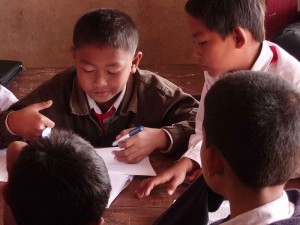Podcast: Play in new window
BOB HIRSHON (host):
How young brains learn. I’m Bob Hirshon and this is Science Update.
Kids are like information sponges. But it gets harder to form long-term memories after puberty. Researchers used to think this is because adult brains have a harder time forming connections between nerve cells. But new research suggests that’s not the case. Instead, kids’ brains may be better at weakening existing connections that aren’t useful. And that ability strengthens new memories, according to neuroscientist Joe Tsien of Georgia Regents University.
JOE TSIEN (Georgia Regents University):
You can think of it as the background noise is being reduced, and therefore the newly created information will be more robust.
BOB:
His team studied young mice who were bred to have adult levels of a memory receptor called NMDA. Like adults, they had a harder time getting rid of connections that were no longer needed, which got in the way of their ability to form long-term memories. I’m Bob Hirshon, for AAAS, the science society.

